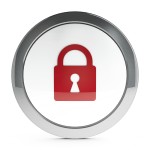
Improving Personal Cyber Security – Top Tips
Improving personal cyber security is key to reducing cyber crime because the weakest link in any organisation’s defence against cyber crime is we the users. Email is the number on vector for cyber crime. Time poor and often working under pressure we make mistakes. We open attachments and links which contain malware and inadvertently share confidential information.
Here are over twenty top tips to improve your personal cyber security from better email management to protecting your personal identity when eating out.
Click here to download the document.
Strong password are vital – click here for top tips to create strong passwords and manage them.
Tags: Password Management, Personal cyber security
Why is cyber crime so prevalent when most organisations have cast iron technological defences?
Would it suppose you to know that we are the weakest link in the organisation’s defence against cyber crime. Why? Because we are often time poor and speed is of the essence.

Cyber crime the weakest link
We grab a coffee whilst using a mobile device and forget to look around to see who is watching us and listening to us as we key in our passwords. Yes, the professional hacker can detect your key strokes by special listening devices. Maybe we leave our mobile devices open whilst talking to friends. Email is the number one vector for a cyber attack. 75% of all cyber attacks emanate from email. In our haste to clear our bulging inboxes, by accident we open an email which carries malware.
Five top tips to reduce the risk of a cyber attack
Here are ten top tips to help you and your organisation reduce the risk of human error in the fight against cyber crime. It is an extract from Mesmo Consultancy’s new masterclass ‘Human Defence to Cyber Crime’.
In public places
1. Use a pseudo name when ordering food in very public places like coffee bars and fast food shops.
2. Keep all mobile devises either closed or face down when not in use.
3. Have respect for email. Take time when dealing with the inbox no matter how busy you are.
4. Phone senders if you are the slightest bit suspicious about an email: there is a spelling mistake, caps are used etc. Often the sender will not know their account has been hacked until you call.
Password management
5. Change your passwords frequently and at least every three to six months, making sure you either create a strong one or use a password management app.
Need more help?
Would you and your colleagues benefit by going from being the weakest link in the fight against cyber crime to being the most robust and resilient?
Call or email us now for more information about our new masterclass – ‘Human Defence to Cyber Crime’.
Tags: Cyber crime reduce risk, Email born cyber crime, Mesmo Consultancy, Out of Office message cyber crime, Password Management, social media cyber crime
To quote Louis Renault in Casablanca, ‘round up the usual suspect’. This applies to the recent business email overload and etiquette articles. Leaving aside all the technology predictions, here are five articles which caught our attention and are worthy of your too. 
1. Curb digital addiction with these resolutions. We wish we had written this ourselves. Although the slant is on men’s addiction the article really applies to us all. It contains some very practical and easy steps to wean yourself of those smart phones and tablets. For example write something in a book and share it for others to add some comments. Phone a friend instead of texting them.
2. Porsche urged to ban emails out of hours. There is a certain irony and black humour about the Porsche trying to reform their own workforce. After all, are these not one of the most prized status symbols of those who are often the worst offenders for sending late night out of office hours emails? However, other companies are continuing to adopting similar policies to reduce email overload and help people re-build their work-life balance.
3.‘Starwars’ ‘whatever’ other terrible passwords. Starwars and Whatever are among eleven new entries into the list of the worst passwords. Poor password management is worrying in a time when each day new cyber attacks are revealed. Click here to learn how to create a really strong password.
4. How I love thee, email? Let me count the ways I hate its alternatives. Why do many of the time saving alternatives to email not realise their full potential? We are talking about applications like Slack, Facebook for Business, Google Drive etc. The author Rhymer Rigby likens it to communism ‘communism would be great if only it was done properly’. It is all too easy to blame the real-user, when these new tools fail become embedded in our every day working practices (ie you and I). Is this true or is there something else missing, such as adequate training and leadership from the top? These are all great ways to reduce email overload too, so it not time to make them work?
5. iPhone users: upgrade to iOS 11.2.2 Both the new Spectre and Meltdown security flaws can effect iOS devices and users are being urged to update as soon as possible. It’s not often that Apple admits it devices might be susceptible to such flaws so when they do it’s worth listening.
Tags: business email etiquette, Business email overload, Digital addiction, Late night emails, Password Management
It’s been an astonishing few weeks for email news. First, there was the Yahoo breach of security. Then the death of the Blackberry and now a survey from Adobe which revealed yet again just how email addiction is increasing and email response times decreasing.
1. Addicted to email. A recent survey from Adobe reveals that 45% of users check their email even in the bathroom. A frightening 17% still read them whilst driving and 57% check them in bed. Click here to check your own level of email addiction.
The survey also found that half the respondents expect a reply within one hour. This is twice as fast as five years ago, found in previous research from Mesmo Consultancy. Moreover our research revealed that it is usually internals’ who have such an expectation. External senders being prepared to wait longer. Little wonder many feel unable to switch off despite the known downsides of the always on culture.
Although this new study is based on USA respondents, it makes interesting reading and especially for any Director concerned with improving productivity and well-being of their employees.
2. Yahoo hacked. In late September Yahoo finally admitted that over half a billion user’s personal data had been compromised when Yahoo was targeted by hackers over two years ago. Two vital actions for all Yahoo users: first change your password. Second, consider switching to an alternative such as Gmail or Outlook.
3. Passwords are still the weakest link. Michael Chertoff, former head of US Homeland Security revealed that few people set strong passwords. Many default to simplistic ones which can easily be hacked. Click here for more on password management and how to set a secure password.
4. Are those personal apps a potential security threat to your company? Tech companies such as LinkedIn, MySpace and Dropbox have suffered major data breaches, with security research company Ponemon putting the average cost per breach at $4m (£3.2m), or $158 per stolen record. Whilst most organisations let you use these and other apps on your mobile device, Ponemon suggest others too such as Slack, Evernote and WhatsApp, may well be a potential security threat. Once your personal device has been hacked company data on them too can easily be leaked. Although most organisations have tight security policies and practices, getting people to apply them to their personal devices can be very hard as seen above.
5. Death of the Blackberry. That device which was heralded as the mother of improved productivity met its death in late September. Beloved by nearly as many as hated it. Responsible for more divorces than any other piece of modern technology and a nose dive in productivity and well-being should we mourn its passing or rejoice?
Although this new study is based on USA respondents, it makes interesting reading and especially for any Director concerned with improving productivity and well-being of their employees.
Tags: Blackberry, email addiction, email response times, Mesmo Consultancy, Password Management
How well do you protect your on-line reputation to avoid an email disaster? The hacking of Ashley Madison website (the dating agency) provided some statutory lessons about how one’s reputation can be destroyed in a nano second. In a nutshell, this well known dating agency’s data was hacked. Details of about 33 million accounts were released including peoples sexual preferences and fantasies linked to their email address. They also cracked passwords and credit card information.
What made people and business’s more twitchy than usual was that names were associated with companies, because many were silly enough to use their business email address. Technology companies listed included Apple, HP, IBM Sony, Snapchat and Vodafone. Many others were Government officials and household business names.
As a result we have seen some people resigning from their jobs and at least one suicide.
This highly visible hack provides several very pertinent lessons both for us as individual users and corporately for the business. None are new. Perhaps the surprising fact is that so many people continued to forget to bolt the door securely on their on-line identity until it is too late.
Lesson 1 – never use your business email address for anything other than business unless it is an emergency. Use a personal email address for all social emails.
Lesson 2 – be very vigilant about what information you post on websites because In reality nothing is private on the internet. Several people paid to have their profile removed but it still turned up.
Lesson 3 – before hitting send and posting information think about the consequences to yourself should someone else find it, for example either through hacking or worse still close friend or partner.
Lesson 4 – set strong passwords. One survey revealed that over 120 people use simple ones like 123456. Click here for more about password management.
Lesson 5 – spend time developing a crisis management plan whether for your business or self in the event of such a disaster.
This won’t be the last high profile hack but hopefully some will take these five lesson seriously and especially use their business email address more cautiously to manage their own and their company image more carefully.
Call Mesmo Consultancy now to discuss how we have helped our clients to improve the management of their on-line reputation to avoid an email disaster like this and the Sony email disaster.
Tags: Ashley Madison, email disasters, email reputation, Hacking, Mesmo Consultancy, Password Management, password protection